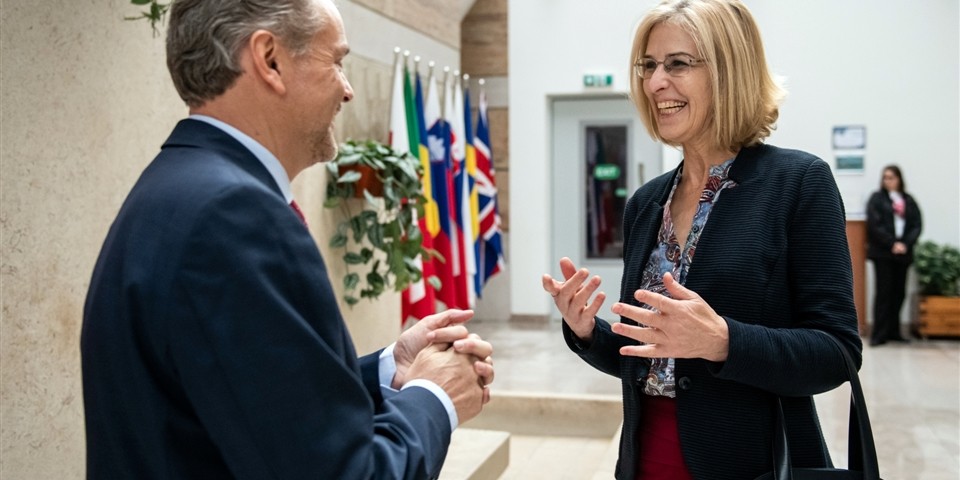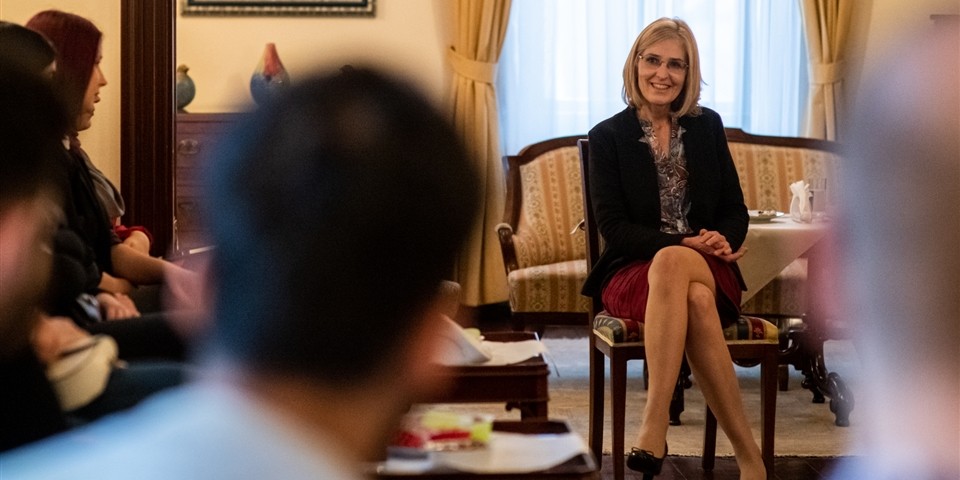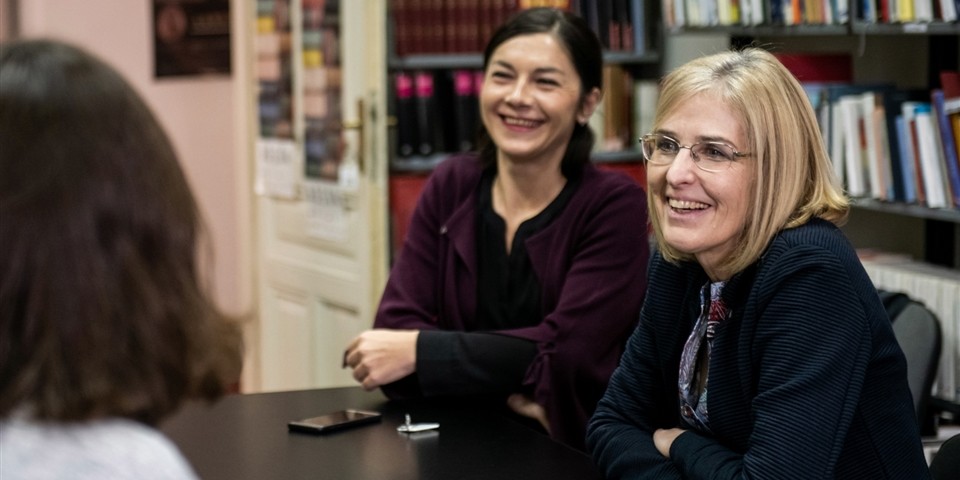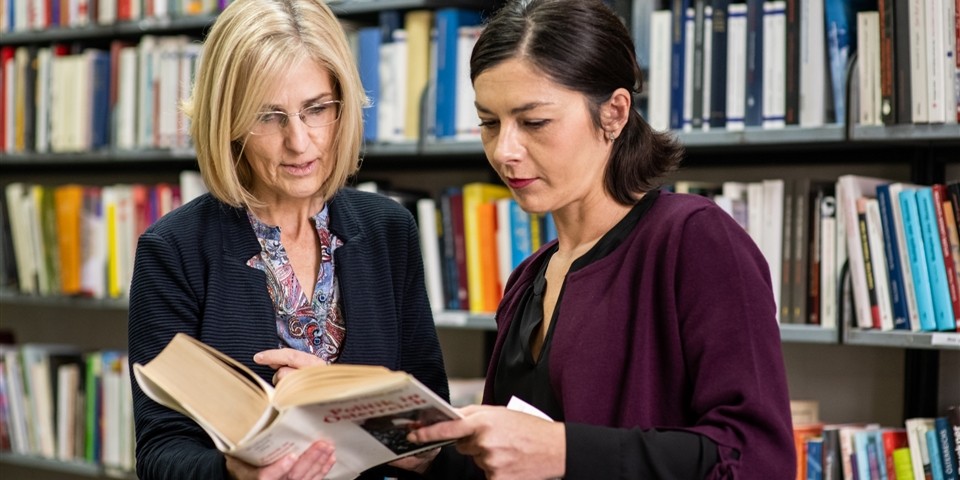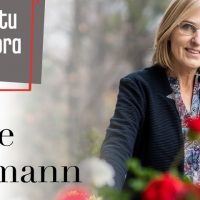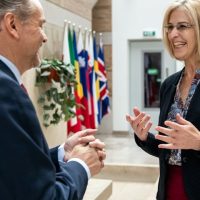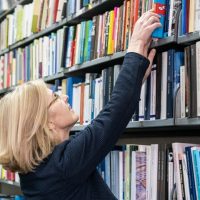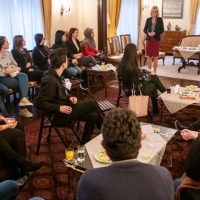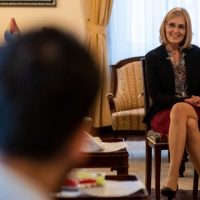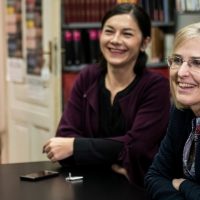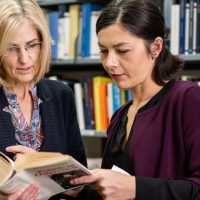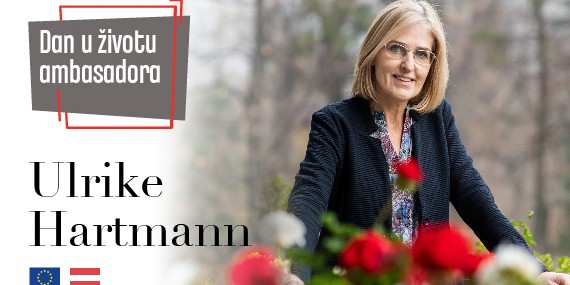
A Day in the Life of an Ambassador Ulrike Hartmann
Ulrike Hartmann, the Ambassador of Austria to Bosnia and Herzegovina, returned in January 2019 to the country she has lived in for six years, this time in the more challenging […]
Ulrike Hartmann, the Ambassador of Austria to Bosnia and Herzegovina, returned in January 2019 to the country she has lived in for six years, this time in the more challenging role of a diplomat. Her days are usually filled with meetings that provide an opportunity to discuss common interests and support the strengthening of cooperation between Austria and BiH. Ambassador Hartmann enjoys hiking and exploring the country and remains fascinated by its rich and complex history. What does a day in her life look like?
The beginning of my position as Austrian Ambassador in January this year was not just a new start, it represented a return to a country in which I had already lived for six years. My current responsibilities, however, do not have much in common with my previous experience. An ambassador is in the public eye, which is quite challenging. Generally, my tasks are time-consuming, but there are moments here and there when I put aside my official role and enjoy hikes in the Bosnian mountains or visit some remote places in the country.
Usually, I start my working day with a short press briefing with my staff. And, since an ambassador’s everyday bread is information, I spend a lot of time meeting people – representatives of various Austrian institutions or Austrian businesses, colleagues from other embassies and international institutions, local politicians, opinion leaders, NGO representatives and journalists. These meetings, however, are not a one way street; they present opportunities to discuss common projects.
As a representative of an EU country, the EU integration process is a particular focus; so, whenever possible, I participate in projects of the EU Delegation that also involve traveling the country and talking to ordinary citizens about the experiences and the benefits of being an EU member. Travnik was one of the places where I personally experienced a lot of public interest in the EU.
Another matter, which needs my constant attention, is the embassy building: the Austrian Embassy is located in one of the most beautiful historical buildings in Sarajevo. It was built during the Austro-Hungarian period and it emanates historical flair, from the inside as well as the outside. However, what fills me with pride on the one hand, presents a huge challenge regarding maintenance on the other.
In the evenings I often either attend cultural events or host dinners at the Embassy’s residency.
The job of an ambassador requires focus and the ability to keep pace with numerous obligations and expectations. However, considering the historical, cultural and geographical connection between the countries, the Ambassador of Austria faces additional expectations.
The job requires a lot of multitasking and working under pressure: At all times, you are supposed to be well informed, you need to be precise in making assessments, you are expected to have a good overview in all areas and take part in a considerable number of activities that often coincide. At the same time, you have to be a team leader and an example to your staff.
Additionally, in BiH, the expectations towards the Austrian Ambassador are particularly high, mainly due to our historical, economic, human and geographical links. In hardly any other country have the media so much interest in statements and public appearances. Thus, interviews for newspapers, radio or TV, on topics like political developments, the EU process or Austrian business engagement take up a considerable amount of my time.
What I look forward to is the experience of such a challenging environment, but also traveling the country and getting to meet people from all walks of life, to talk and to listen to them. We all know that everyday life differs substantially from political talk and media reports. For example, in the past months I had the pleasure to meet with the mayor of Sarajevo Old Town and later with the mayor of East Sarajevo Old Town, including a little tour of his municipality. We talked about their work and the daily problems and challenges they face; both mentioned their correct cooperation, for example in helping to secure water and electricity supply for individuals in each other’s municipalities. This is an example of how communities in the two entities can and should cooperate.
As Austria is geographically close and the Western Balkans show more and more interest in Austria, numerous study groups and delegations visit the country and usually request a briefing at the Embassy. It is always a pleasure to present not only my own country in BiH, but also to inform Austrian students, pupils, teachers and professors, lawyers, representatives from political parties or NGOs about my host country. Apart from the political complexities, I try to convey a complete picture, talking about the problems of ordinary people, the economic situation, the huge touristic, agricultural and energy potential, the Bosnian way of celebrating, playing music and dancing, and to highlight the cultural events that would deserve more attention abroad.
The Ambassador is most proud of the opportunity to forge stronger connections between Austria and Bosnia and Herzegovina, for which she receives great support from her team.
I am very proud to promote Austria and its interests in BiH and to create good connections between people. Within the Embassy, it makes me proud that I have an excellent team of people around me.
BiH is so multi-faceted that I have the impression that foreigners get confused the more they learn about the country. For someone interested in a career in diplomacy, it is most important to be curious and interested in many different areas, to be open-minded and to have understanding and empathy for others, to be a good listener, to have good manners, to speak several languages, and, importantly, to be prepared to follow instructions even when you are personally of a different opinion.
I am very interested in the history of the country and its multi-ethnic character. What I find fascinating is that so many different historic influences of different countries and peoples are visible and noticeable in all areas – in culture, language, cuisine, architecture. Just take the sevdalinke, which reminds me of Portuguese fado, along with the Yugoslav hits by “Indexi”, “Vajta” or “Bijelo Dugme”. It is the mixture which makes this country so unique.


